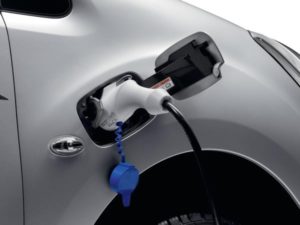The UK Government is set to release its delayed ‘Road to Zero’ plan later this month, likely to confirm that only plug-in hybrid, electric and hydrogen fuel cell vehicles will be available from 2040.

Originally due to have been published in March, the document will set out how the UK will decarbonise its road network. Importantly, it will also clear confusion following the clean air strategy released last summer, which said the sale of ‘conventional’ petrol and diesel vehicles would be banned from 2040, but did not identify whether this included non mains-rechargeable hybrids, such as the Toyota Prius.
Speaking at this week’s Oxford EV Summit, Natasha Robinson, head of the Office for Low Emission Vehicles (OLEV), said the document was due imminently: “The minister has said we are trying to get it out before Summer Recess. That’s on the 24th July, I’ll leave you to work out how many days there are between now and then and I’ll just say the team is working really hard.”
Fleet World reported last November that the Department for Transport had tightened the definition to vehicles which could be driven just using electricity – which would include hybrids without a mains-rechargeable range, but exclude the ‘mild hybrids’ which are becoming more common to help meet tightening fuel economy standards.
In May, the Department for Transport rebuffed rumours that the strategy would mean only plug-in or hydrogen fuel cell vehicles will be available after 2040. A spokesperson stressed that plans had not been finalised, despite also claiming in no uncertain terms that they would not affect hybrid vehicles: “We do not comment on leaked draft documents,” he told Fleet World. “The Road to Zero Strategy is yet to be finalised and has not been agreed by Ministers. It is categorically untrue that Government is planning to ban the sale of hybrid cars in the UK by 2040.”
However, previous documents suggest that the line will be drawn at ultra-low emission vehicles. The Government said in 2013 that road transport would need to be decarbonised by 2050, with every new car and van having to be a ULEV by 2040.
However, previous documents suggest that the line will be drawn at ultra-low emission vehicles. The Government said in 2013 that road transport would need to be decarbonised by 2050, with every new car and van having to be a ULEV by 2040. It reiterated those aims in 2015, saying it would support consumers with financial support and a national charge point network. Both documents imply the line will be drawn at plug-in hybrids, rather than hybrids. The 2040 cut-off date was originally proposed by the coalition government in 2011.

